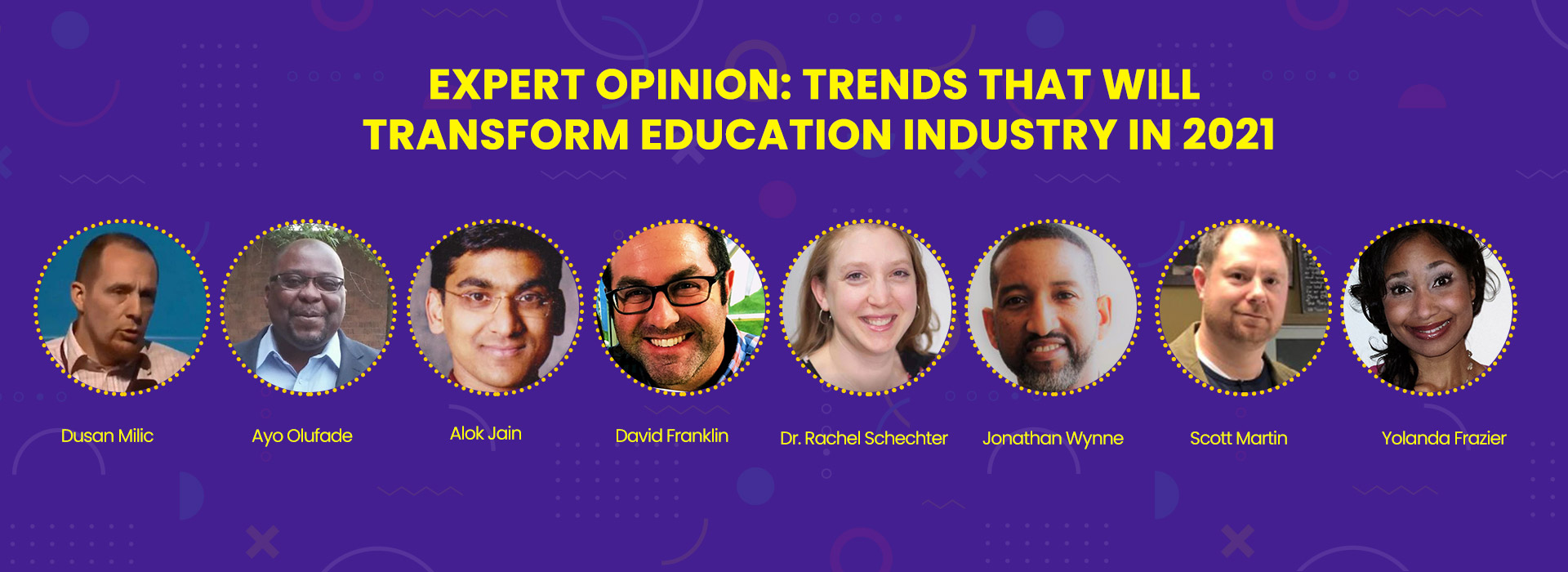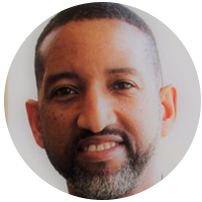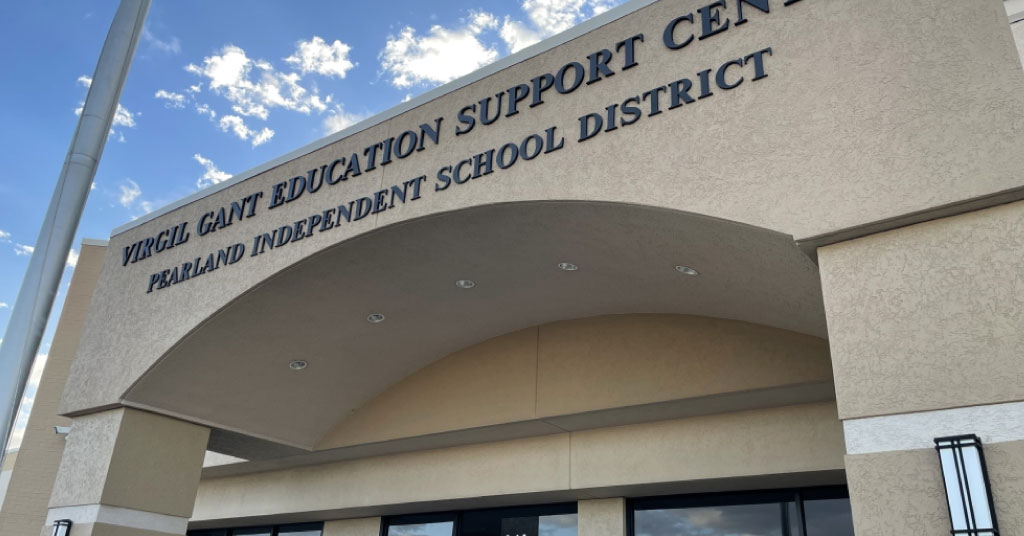
Moonpreneur
The COVID-19 pandemic that brought the world to a standstill, has not just changed the way in which students are educated but has also forced the EdTech sector to up its game. Technology in the classroom has consistently been an advantage to schooling, enabling personalized, mastery-based learning, saving time for teachers, and equipping students with the digital abilities that will be much needed in the 21st century.
In light of the pandemic, thousands of schools, millions of teachers, and students had to switch to remote classes and adapt to it almost overnight. Fortunately, EdTech has made things easier, replacing traditional teaching methods for the better. By 2025, the e-learning market is estimated to rise to a valuation of $325 billion, showing its tremendously positive trend.
To understand the complexities and solutions provided to deal with this unforeseen change of events, Moonpreneur reached out to a few industry experts to get their views on this. Let’s check out what they have to say.

1. Dusan Milic
Dusan Milic, CEO at All About Robots, an EdTech startup, has years of experience as President of the Assembly at Electronic & Robotic Association and euRobotics coordinator for Serbia, Dusan Milic has its own EdTech startup.
He is currently the CEO of a two-year-old company, All About Robots, which creates and manufactures educational sets for easy learning robotics and electronics.
Dusan said, “Since 2010, there has been a fascination with science and technology, especially by robots that can be programmed by children from the earliest age.
This is good on the one hand because robotics has reached the widest population in some form, but on the other hand, it does not give the expected effects. The reason is clear: Child, who is not interested in robotics, will not be moved much in that direction by toy robots. It is similar if you buy a microphone for the child who likes robotics – he will not become a singer.
“We need to support every child’s interest that exists and not “force” everyone to follow the trends. That euphoria seems to have subsided in the last couple of years and now I think that it is the right moment to move forward in the right direction,” Milic said further adding, “In my opinion the year will be a turning point – the informal education industry will focus to manufacture more knowledge-based products for children/students/peoples who are interested in robotics instead of “toys” catching for everyone. In fact, the year 2020 saw a significant rise in the number of robotic units sold to 465,000.
Real knowledge of future products will be significantly more detailed in order to enable users to take their existing knowledge to the next level. Manufacturers who will succeed to create a product that allows the easiest transition from existing to a new level of knowledge will open the door to a new real knowledge-based educational industry.”

2. Dr. Rachel Schechter
Dr. Rachel Schechter, Edtech Learning Sciences & Evaluation Expert, has over 10 years of experience in developing informal and formal educational programs. She helps teams incorporate learning sciences and leverage data-driven technology to accelerate student growth (and sales).

3. David Franklin
David Franklin, Ed.D. is a dynamic leader focused on driving innovation and enhancing the field of education through technology, data, and strategy. He has a rich educational field experience and applies those learnings to advance today’s technology.
David said, “The education industry was turning on its head this past year as millions of students participated in remote learning for different lengths of time. This shift required teachers to rethink their pedagogical mindset and to think more creatively on how to reach their students.
One of the most important shifts has been transforming learning experiences from teacher-led to teacher-facilitated. Asynchronous learning models have given students the opportunity to explore the content, provided by theory teachers, on their own time and in their own way. Information needed to be presented to students in multiple modalities and delivery systems in order to meet the unique needs of individual students.
Looking forward, students need to be in the driver’s seat of theory education, not a passenger. Statistics point in the direction of increased use of augmented reality and virtual reality tools that change the way students receive and analyze information. In using a restaurant analogy: Teachers do not need to be the maitre d’, server, and cook, but should focus on providing a menu for students to work through.”

4. Ayo Olufade
Ayo Olufade, Educational Consultant in STEM Education is a Biochemist, Biotechnologist, Science Teacher in K-12 Education, Adjunct Professor, and Project Management Professional. Ayo has extensive experience in coordinating all facets of curriculum and program evaluation as well as the ability to plan, implement, monitor, and assess a school-wide STEM program.

5. Alok Jain
Alok Jain is the CEO and Co-founder of the Silicon Valley-based EdTech start-up Moonpreneur. He is a serial entrepreneur with four successful companies in his list of accolades. His most recent venture, Moonpreneur Inc., is disrupting the EdTech sector.
An IIT-alumni, Alok’s vision is to bring about a change in the way children are prepared outside traditional classrooms. With the brain of an entrepreneur and the heart of a father, Alok decided to create this company that imparts children with an entrepreneurial and innovative mindset.
His sole focus currently is to secure the future of the young generation through hands-on entrepreneurial training, STEAM-based learning, and an outcome-focused approach via the Moonpreneur’s program.
Emphasizing the importance of preparing students for the future and imbibing an entrepreneurial mindset in them, Alok emphasizes that “The world is changing at a rapid pace and jobs as we know them are either changing form or getting cut altogether. With this technological change, we will see multiple companies solve problems at scale using these cutting-edge technologies in the coming decade. Some statistics predict that soon about 88% of worldwide businesses will incorporate robotic automation into their framework, which may result in a drastic transformation of the job industry.
The conventional teaching methods need to go back to the drawing board and must be redesigned to give children skills that will last them a lifetime. In the information technology age, education must not be focussed on technical skills only, and the younger generation needs to be groomed to become innovators and entrepreneurs so that they can create products that change the world and also be the job creators of tomorrow.”
Alok further added, “It is surprising that people graduating in technical courses today have a long learning curve before they are employable, and this should not be the case. The education system should be holistic in the sense that it should give students the knowledge and skills that will help them be productive and successful as soon as they graduate.”

6. Jonathan Wynne
Jonathan Wynne is currently the Director of Training and Education at Kingdom Concepts. He has years of experience in the education industry and designs, coordinates, and facilitates training and professional development programs for schools, churches, and community organizations. Jonathan is also the author of Pandemic Parenting: IMPACT Strategies for Success.
Explaining the changing trends in the education industry, Jonathan said, “The education industry has begun a change process that may cause more school districts to infuse more project-based learning into their lesson plans, data-driven decisions to create new policies, and innovative solutions to everyday problems for students, parents, and educators. Ed-tech industry is already exploring gamification strategies which will soon be a major aspect in the way we approach education.
The events of the pandemic have caused everyone in the industry to encounter new problems that need to be solved. I believe more schools, parents, and service providers will see the practical value of creative problem-solving strategies. Design thinking is an effective approach to problem-solving that can be applied in a variety of situations for students, parents, educators, and service providers. With all the changes we have experienced since March 2020, innovation in problem-solving has proven to be an extremely valuable, but unharnessed commodity. Processes like design thinking provide opportunities for innovation, especially in crisis situations that call for effective solutions quickly.
MIT describes the design thinking process in this manner: Stage 1: Empathize—Research Your Users’ Needs. Stage 2: Define—State Your Users’ Needs and Problems. Stage 3: Ideate—Challenge Assumptions and Create Ideas. Stage 4: Prototype—Start to Create Solutions. Stage 5: Test—Try Your Solutions Out.
As we continue to discover things that need to change/improve we will need to be proficient in coming up with innovative solutions in a short period of time.”

7. Scott Martin
Scott Martin is the founder and CEO of an Edtech startup named THiNKtech and has over 15 years of experience in the education industry.
Scott explains, “In short, I feel education will finally shift in a direction that focuses on placing social-emotional wellness and academic rigor on a level playing field. It is now more evident than ever that students crave interaction and connectivity to engage in the schooling process. E-learning has provided a platform for students to take on self-paced learning and digital tools are aiding educators in making online classrooms more engaging.
I am hopeful that this upcoming school year we will see expedited digital literacy of teachers and students, and the massive investment of school districts in technology infrastructure collide and begin to utilize technologies such as ours to foster conversations, interactions, and collaboration in ways that transform every classroom into a student-centered workspace.”

8. Yolanda Frazier
Yolanda Frazier is an exemplary model for the Portland and Southwest Washington business and community arenas. She works towards bringing about equity and better business and educational operations. Her talent, skills, and expertise help people get connected, guided, and meet goals.
Yolanda said, “As a non-profit founder of CHROME and a Senior Equity and Educational Consultant, I have found our educational industry amongst other industries lacking true inclusiveness, and this has existed for many years. In the year 2018-2019, about 14% of American Public Schools had students in the age group of 3 to 21 years who received special education services.
Today, yesterday, and onward we must shape our spaces to first be inclusive of the most disadvantaged and disenfranchised individuals. As we speak, look, act, and evolve from different experiences, we must learn to tap into how each one learns and then most importantly, how each one teaches and widens the gate for the next generation of educators. My focus is on creating equity and inclusion so that students are primarily given vital access to resources to learn and thrive. Secondly, we must be stewards in the sustainability of this type of accessible education and empowering our communities to thrive and support this new platform of thinking. As we delve into this practice, we’ll be efficient, and our mindsets will be entrepreneurial as to always offer a difference to those who are in need.”
She further added, “Nonetheless, as we’ve experienced in pre-2020, 2020, and post-2020, our mindsets must firstly be accepting of evolving and changing. We must train our children, communities, and organizations to expect transformation as we grow and learn. This is change, this is equity, and this means inclusion as we continue to face new horizons.
What are your thoughts on this? Which of these trends do you think will be there and transform the education system? Feel free to share your thoughts in the comment section.










